“You coulda saved yourself the trouble an’ let me die.”
|
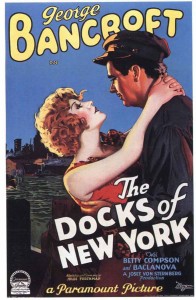
Synopsis:
A ship stoker (George Bancroft) saves a depressed prostitute (Betty Compson) from suicide, then marries her on a drunken lark.
|
|
Genres, Themes, Actors, and Directors:
- George Bancroft Films
- Josef Von Sternberg Films
- New York
- Prostitutes
- Romance
- Sailors
- Silent Films
- Suicide
- Waterfront
Review:
Josef von Sternberg’s whirlwind romantic fable manages to pack an enormous amount of genuine pathos into a story taking place literally overnight. Thanks to sensitive acting by all involved, we quickly grow to care for these characters — particularly the world-weary Compson — and are disappointed when the film ends after only 76 minutes. There’s a refreshing lack of moralizing, thus affording us a much more authentic glimpse of these characters’ lives than would be possible just a few years later during the Hays Code era. Harold Rosson’s atmospheric cinematography of the New York waterfront is a wonder to behold, and adds to the film’s overall appeal.
Redeeming Qualities and Moments:
- George Bancroft as the well-meaning yet fiercely independent sailor (nominated by Peary for an Alternate Oscar as best actor of the year)
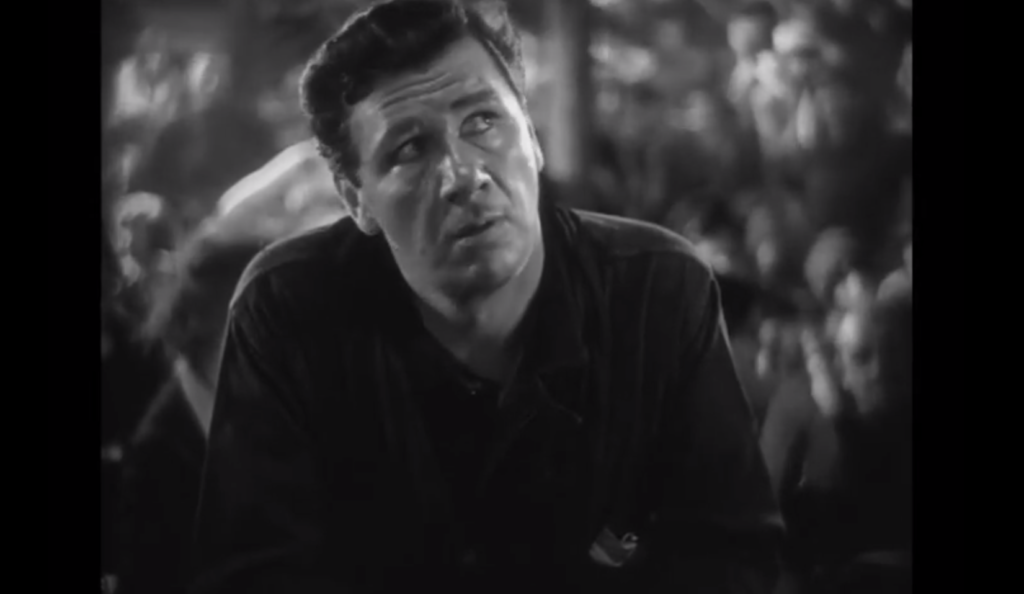
- Olga Baclanova as Compson’s helpful friend
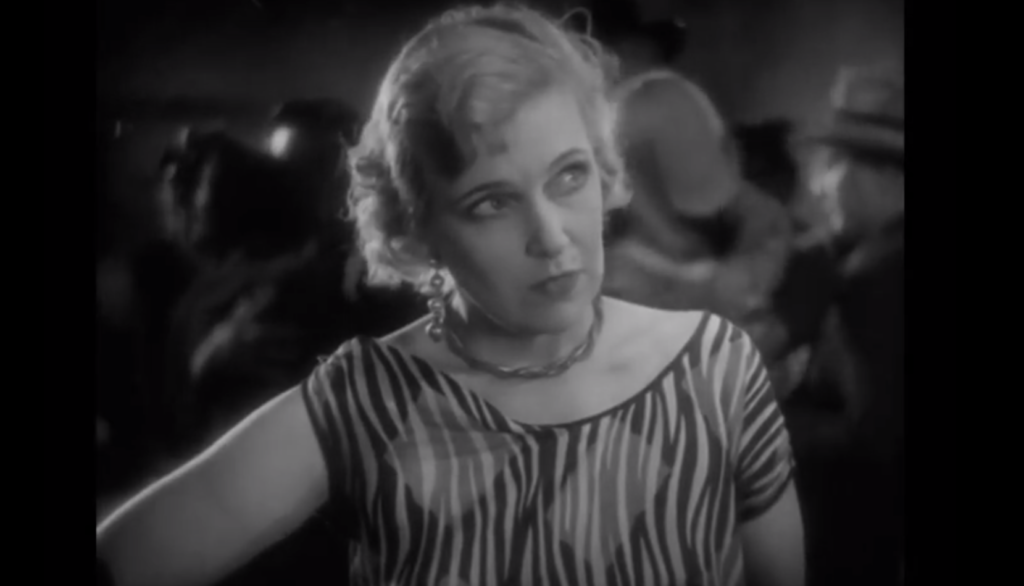
- Gorgeous black-and-white cinematography
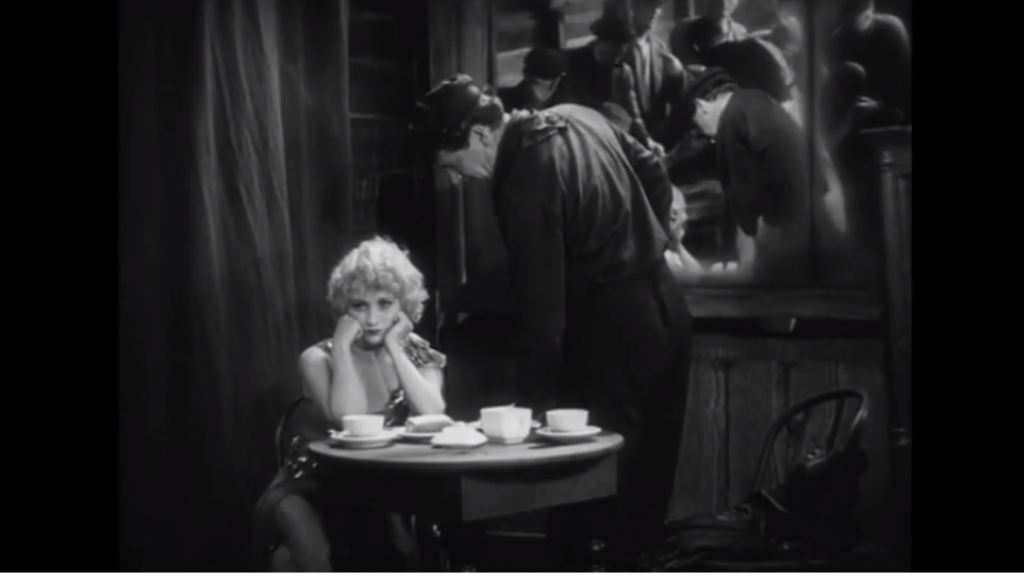
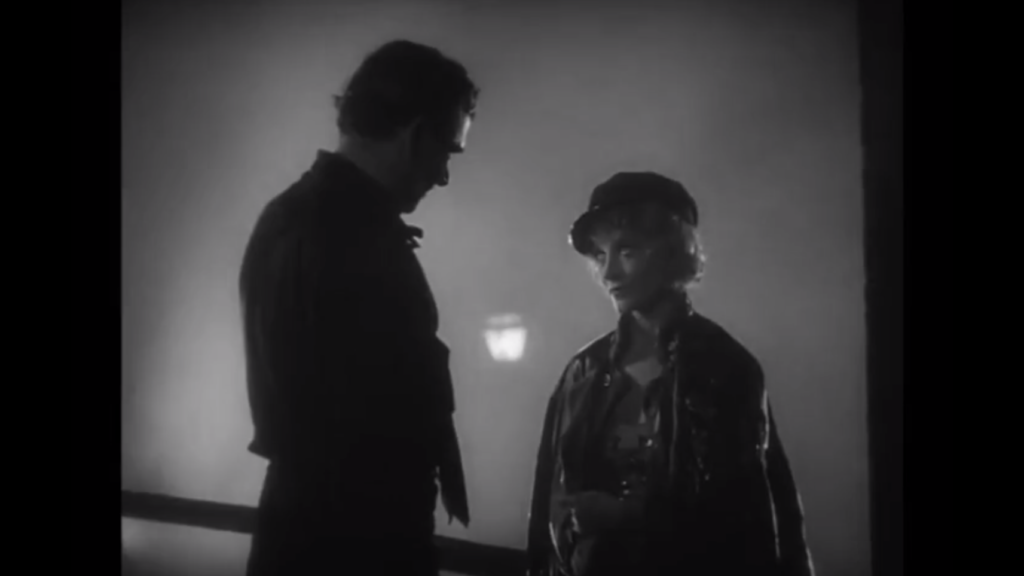
Must See?
Yes. This is a rare silent film which transcends the limitations of its format, and emerges as a surprisingly effective romance.
Categories
(Listed in 1001 Movies You Must See Before You Die)
Links:
|





One thought on “Docks of New York, The (1928)”
An absolute must!
A perfectly realized film – and the rare silent that hardly feels like a silent at all.
This is von Sternberg before he entered the realm of Exotic/Iconic von Sternberg. We’re afforded more of a purity of heart. Not that there’s anything squeaky-clean here. This is the down-and-dirty stuff of Eugene O’Neill – it’s O’Neill with just a touch more sparkle in his eye.
It’s also one of the oddest, most subtle developments of love captured on film. The emotional reality of what’s happening sweeps the leads up in a way that’s perplexing to both of them. At the start of the film, neither one of them seems to think love has any basis in fact: one thinks love doesn’t exist at all, the other thinks love is just another word for play –
Bancroft: All you need is a good time.
Compson: I’ve had too many good times.
Bancroft: You ain’t never been out with Bill Roberts.
Compson: Dry up before you catch cold.
Considering the loaded look Compson gives Bancroft with that last line, one can easily read a deeper meaning: ‘You are so full of shit.’ But Bancroft reads the surface and, in spite of himself, begins to fall…ever so slowly. We know he’s slow to catch on because his natural impulse towards Compson is thwarted by his own tempestuous nature: he jokingly offers to marry her with an off-handed “I’ll try anything once!”
Conversely, Compson – who has clearly seen as much of the tawdriness of life as Jane Fonda in ‘They Shoot Horses, Don’t They?’ – finds herself head-on with the opportunity she believed life would never offer: a parson, hesitant to perform an unconventional marriage ceremony between the ‘lovers’, asks her, “Does it mean that much to you?” ~Compson is beyond any words in response.
Bancroft and Compson are nothing short of expressively wondrous in their roles. I esp. like the moment in which Compson pulls Bancroft away from a fight; his smiling face implies, ‘Why, if it weren’t for the little woman, you’d be mincemeat.’ For her part, Compson reaches levels that a lesser actor would miss in service to the simple plot.
Special mention deservedly goes to the marvelous support given by Olga Baclanova. A deep well there.
The Criterion print is stunning, capturing the shady look of the film in all its splendor. The closing shot is priceless. I just can’t praise this one enough!